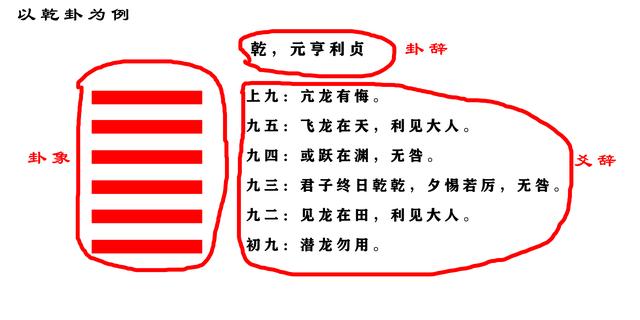中考必背50个英语句型(160个句子高效记忆英语中考90)
11、Nowadays, more and more countries start to pay attention to the pollution, they advise people to prefer paper bags to plastic ones when they go shopping.,我来为大家科普一下关于中考必背50个英语句型?下面希望有你要的答案,我们一起来看看吧!

中考必背50个英语句型
11、Nowadays, more and more countries start to pay attention to the pollution, they advise people to prefer paper bags to plastic ones when they go shopping.
当今, 越来越多的国家 开始关注污染,他们建议人们在购物时选择纸袋而不是塑料袋。
more and more: 越来越多 形容词比较级 and 形容词比较级.... 表示“越来越......” (同一个形容词)
the 比较级...., the 比较级, 表示“越......越.......” (不同的形容词)
pay attention to:注意,关注。to是介词,后面加名词、代词、动名词,类似的还有look forward to
advise [ədˈvaɪz] v. 劝告; 建议; 出主意; advise sb. (not) to do sth.
suggest [səˈdʒest] v. 建议, 暗示 suggest sb. doing sth.
prefer[prɪˈfɜː(r)] : 宁愿,更喜欢 =like better
(1) prefer sth. I prefer apples. 我更喜欢苹果。
(2) prefer doing sth. I prefer reading books in my spare time. 在我的空闲时间里,我更喜欢读书。
(3) prefer A to B: 与B事物相比,我更喜欢A: I'd prefer Chinese to English. 我喜欢语文胜过英语。
(4) prefer doing A to doing B: I prefer reading books to doing sports.和运动比起来,我更喜欢读书。
(5) prefer to do sth. 强调某次具体喜欢,是暂时的。 prefer doing sth. 一贯的,长期的喜好
12、Although both noise and voice can be called sounds, all the people enjoy the beautiful voice from good singers and no one wants to hear noise.
尽管噪音和嗓音都被称为声音,但是 所有人都喜欢好歌手的优美嗓音,没人要听噪音。
both 两者都。反义词:neither;用在be动词后,实义动词前。They are both teachers.
They both are teachers.(X)
all 三者或以上都。 反义词:none;用在be动词后,实义动词前。
noise:指的是一些吵的,让人觉得不愉快的噪音;
voice:指的是一个人唱歌或者说话的嗓音;
sound:泛指一切自然界的声音;
no one 没有人=nobody,指人不指物,其后不可接of短语;做主语时,谓语动词用单数;用来回答:who
none:既可指人也可指物,否定的是数量,一个没有的意思,所以用来回答:how many / how much
13、You'd better not look up each new word in the English-Chinese dictionary while you are reading the English newspaper or novel.
当你读英语报纸和小说的时候, 最好不要每个新单词都查英汉词典。
You'd better=you had better, 表示建议,“应该,最好”后接动词原形,否定式在动词原形前加not。多用于上级对下级,长辈对晚辈。语气不太礼貌,带有强制、命令的意思。I think you should.../ My advice is.../Have you thought about...?
look up: 查阅(seek information from);好转;探访(久未见面的人)
dictionary [ˈdɪkʃənri] n. 词典; 字典;
novel [ˈnɒvl] n. (长篇)小说
while [waɪl] 当...的时候
when所引导的从句,其谓语动词既可是持续动词,也可是短暂动词;谓语动词动作发生的时间可以与主句谓语动词的动作是同时,或之前、之后。
while句中的谓语动词应为持续动词,不用短暂动词,谓语动作发生的时间通常与主句谓语动词动作发生时间是同时。
14、In many western countries, thirteen is not regarded as a lucky number, but no one knows why.
在许多西方国家,13 不被认为是一个幸运的数字,但是没有人知道为什么。
western [ˈwestən] adj. 西方的; -ern 形容词后缀“…方向的,…性质的”east---eastern
be regarded as: 被视作,被认为
no one 没有人=nobody,指人不指物,其后不可接of短语;做主语时,谓语动词用单数;用来回答:who
none:既可指人也可指物,否定的是数量,一个没有的意思,所以用来回答:how many / how much
15、The careless patient mistook a white button for a pill so the doctors operated on him immediately to take it out as soon as possible .
那个粗心的病人把一颗白色的纽扣误认为是一粒药,因此医生立刻为他动手术,尽可能快地将其取出。
careless [ˈkeələs] adj. 粗心的,不仔细的,-less 形容词后缀,表示without“无...的,不...的”colorless无色的,苍白的。colorful多姿多彩的,-ful形容词后缀,表示full of
patient [ˈpeɪʃnt] n.病人 adj. 有耐心的
operate [ˈɒpəreɪt] v. 操作,控制,动手术 operate on sb. 对某人动手术
mistake [mɪˈsteɪk] n.错误,失误 make a mistake/by mistake v. 误会,误解 mistake...for... 把...错当成 ...
as soon as possible 尽快
as....as possible: 尽可能的.... as quickly as possible 尽可能快;as much as possible尽可能多
16、 If food supplies the energy to children, knowledge provides the chance for the children to improve themselves and realize their dreams .
如果食物给孩子提供能量,知识就为孩子提供完善自我,实现梦想的机会。
supply [səˈplaɪ] v. 供应,提供 n. 常用复数形式,表示军队或探险队等的 补给
provide [prəˈvaɪd] v. 提供,供应
provide:指有远见,为应付意外、紧急情况等作好充分准备而“供给、提供”
用于provide sb.(with sth.)或provide sth. for sb. 结构。
supply:通常指定期“供应”,强调替代或补充所需物品
常用于supply sb. with sth.或supply sth. to sb.结构。
17、 After the leaders discussed with each other about the sports meeting, they agreed to cancel it because it might snow heavily and some accidents might happen.
在领导们就运动会进行讨论后,他们同意取消运动会,因为可能会下大雪,可能会发生一些事故。
discuss [dɪˈskʌs] v. 讨论,商量 discuss sth with sb.
agree [əˈɡriː] v.同意,赞同
agree with
(1)表示同意某人或其意见、解释等(即持同一观点) I quite agree with you. 我完全同意你说的。
(2)表示“食物、天气、工作等对......适宜”The food doesn't agree with me. 这食物不合我的胃口。
(3)表示“与......一致” A verb must agree with his subject in person and number. 动词必须与它的主语在人称和数方面保持一致。
agree to
(1)后接名词,表示同意或接受某事,尤其是指别人提出的某事,有时可能是自己不喜欢的事。
We agreed to their arrangement. 我们同意了他们的安排。
(2)后接动词原形:agree to do sth或后接动名词:agree one’s doing(一般不说agree sb to do sth)
He agreed to my going home. 他同意我回去。
agree on:主要指双方通过协商而取得一致意见或达成协议。
cancel [ˈkænsl] v. 取消,终止,废除
heavily [ˈhevɪli] adv. 沉重地,在很大程度上,大量地,
snow heavily(snow动词,下雪,所以用副词heavily)
heavy snow(snow名词,雪,所以用形容词 heavy)
18、 A few little girls like the Chinese teacher because he looks like a famous Japanese film star and also knows a little Japanese culture .
一些小女孩喜欢语文老师因为他看起来像一个有名的日本电影明星,而且他也知道一些日本文化。
|
不可数 |
可数 | |
|
否定 |
little |
few |
|
肯定 |
a little |
a few |
little: adj. 表示幼小的,矮小的,含有感情色彩,意思是“小的可爱,小的可怜”等意思。一般放在形容词后面。如:The poor little boy! 这可怜的小家伙!
look like:看起来像,侧重于外貌看起来相似
be like: 像...一样。使用范围较广,可以问外貌,也可以问性格。
19、The manager prefers going to a restaurant with his friends to inviting them to have a meal at home because he says it is too tired for him to prepare food and cook at home.
比起在家请客,那个经理还是喜欢和朋友去饭店吃,因为他说他太累了,不想在家中准备和烹调食物。
prefer[prɪˈfɜː(r)] : 宁愿,更喜欢 =like better
(1) prefer sth. I prefer apples. 我更喜欢苹果。
(2) prefer doing sth. I prefer reading books in my spare time. 在我的空闲时间,我更喜欢读书。
(3) prefer A to B: 与B事物相比,我更喜欢A: I'd prefer Chinese to English. 我喜欢语文胜过英语。
(4) prefer doing A to doing B: I prefer reading books to doing sports.和运动比起来,我更喜欢读书。
(5) prefer to do sth. 强调某次具体喜欢,是暂时的。 prefer doing sth. 一贯的,长期的喜好
prepare [prɪˈpeə(r)] v. 准备 prepare sth 准备... prepare sth for sb 为某人准备某物
prepare for sth:为...做准备:prepare for the final exam
prepare sb for sth 让某人对某事有所准备 prepare myself for the exam
it is adj. of sb to do sth. 中的adj.一般用来表示人的性格、品德。是表示主观感情或态度的形容词, 如:kind, clever, foolish等
it is adj. for sb to do sth.中的adj.一般用来表示事物的特征特点。是表示客观形式的形容词,如:easy, difficult, interesting, impossible等
20、Every Saturday science museum is crowded with a lot of middle school students, and some teachers are busy explaining the scientific secret behind a lot of interesting experiments.
每周六,科学博物馆里挤满了中学生,而老师忙于解释许多有趣实验背后的科学奥秘。
be crowded with: 充满,挤满 crowd n. 人群,一群人, v. 挤满,塞满
be busy doing=be busy (in) doing 忙着做某事
science [ˈsaɪəns] n. 科学,自然科学,理科
scientific [ˌsaɪənˈtɪfɪk] adj. 科学上的,关于科学的
scientist [ˈsaɪəntɪst] n. 科学家
,免责声明:本文仅代表文章作者的个人观点,与本站无关。其原创性、真实性以及文中陈述文字和内容未经本站证实,对本文以及其中全部或者部分内容文字的真实性、完整性和原创性本站不作任何保证或承诺,请读者仅作参考,并自行核实相关内容。文章投诉邮箱:anhduc.ph@yahoo.com






